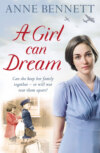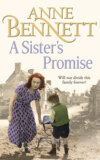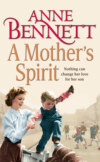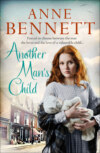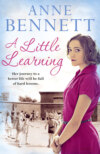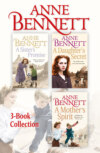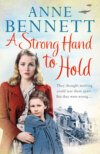Читать книгу: «Love Me Tender», страница 2
And who would be hearing confession? It mattered because Father Flaherty was likely to give you a whole decade of the rosary for forgetting your prayers once, while Father Cunningham was much kinder and more understanding. But did you know who it was when they had the screen between them and you, and then voices were probably muffled in the box?
Lizzie decided she’d better not say she’d been too bad, for if it was Father Flaherty on the other side, she might spend the rest of her life on her knees. She’d say she’d been disobedient and cheeky and sometimes forgot her prayers; it would be better not to say she couldn’t be bothered sometimes. Anyway, three sins would do for now, Lizzie thought, as she curled sleepily in the bed. She had a mind it would take quite a few confessions to account for seven years of sins.
In the event it wasn’t so bad at all. They sat in the pews in the dimly lit church that was almost as familiar to them as their classroom, and shuffled down the rows, one by one, towards the confessional box in their turn. Strain as the children might, they could hear not a word spoken, just a tantalising mumble, and Lizzie was glad no one could hear the bold things she would tell to the priest.
Lizzie’s friend Maura Mahon told her that priests went blind into the confessional – it was well known, she said – and when you’d confessed, as soon as you left the box, anything you told them was wiped from their memory. Lizzie thought that very comforting, even if it was only Father Cunningham hearing the first confessions of the children.
Lizzie was given three Hail Marys and a Glory Be as a penance for the list of sins she told to the priest and Maura had the same, but Mairead Cleary had to say a whole decade of the rosary! Ask as they might, none of the children could get her to tell them what she’d said to be given such a heavy penance. Maura whispered to Lizzie she thought you’d get little more if you murdered someone and Lizzie was inclined to agree.
Certainly Mairead looked sorry enough as she knelt at the rails of the side altar with the statue of the Virgin Mary before her. She had her head bowed for a long time, but then one Our Father, ten Hail Marys and a Glory Be can’t be said in a couple of minutes. When Lizzie saw Mairead make the sign of the cross and then drop a coin in the box and light a candle, her eyes nearly popped out of her head; she’d never had money for candles.
‘She’s just making sure,’ Maura whispered. ‘She’s lit a candle so that Our Lady will put in a good word for her with God.’
‘She must have done something desperate, all right,’ Lizzie said with awe.
Her mammy had always said the Clearys were a funny bunch. She said it was strange these days to have the money they seemed to have to splash about when never a one of them appeared to be in work to earn it.
But all the same – a whole decade of the rosary…
The Saturday night before Lizzie’s first communion was the same as every other Saturday night as far back as she could remember. Her mammy would fill the boiler in the cellar early in the evening, and later her daddy would lift the large tin bath from the hook on the back of the cellar door and fill it with buckets of water from the boiler and cold from the tap so that Kathy could bath the children and wash their hair. Lizzie loved her bath, though in the winter the cellar was freezing. Now that her daddy had got a job, he’d bought an old oil stove which stank like mad but at least made the place warmer.
Lizzie was particularly glad to have her hair washed if she’d had stuff put on it to kill the nits. Every Friday night she had to sit over a newspaper while her mother attacked her with the nit comb, and if any were found, smelly lotion had to be put on her hair, and on Danny’s too, and left all the next day, and it stank worse than the oil stove.
That Friday night, nothing had been found in Lizzie’s hair, but her mammy gave it a good washing anyway to make it shiny. Then she carried Danny upstairs, and Lizzie’s daddy came for her with a towel he’d been warming by the fire while her nightclothes were draped over the guard to air.
Lizzie glanced over at the communion dress hanging from the picture rail. She knew her mother had washed it and starched it before ironing it to take some of the limpness out, and it looked quite pretty really. Kathy knew something of her daughter’s feelings; she’d been the eldest in her family and had had a new communion dress that later had to do for both her sisters – Maggie, who was six years younger than her, and Carmel, the baby of the family – and the same with the confirmation dress a few years later. It would have been nice to get Lizzie a new one, but such a waste with Sheelagh’s just lying there. It wasn’t as if they had another girl in the family to pass it on to either, though there would be one more O’Malley before Christmas, for since her sex life with Barry had resumed in February, she’d not had a period.
‘Do you like it, pet?’ she asked Lizzie.
‘Yes, yes, I do, I just wish it hadn’t been our Sheelagh’s.’
‘Now, Lizzie.’ But Kathy, though she rebuked her daughter, knew what she meant for, God forgive her, she didn’t like the child either, and was less than keen on her mother, Bridie.
She often wished Pat wasn’t quite so easy-going, for he’d allowed himself to be led down the aisle by that Bridie Mulligan, and everyone knew what she was. Sheelagh was one in the same mould, and yet Pat was the gentlest, most considerate and pleasant man you could wish to meet.
There would be no more children in that family, if you could go by what Bridie had told her. After Matthew was born, three years after Sheelagh, she’d said Pat would have to tie a knot in it, for he was not getting near her again. Kathy had been shocked, because even though she and Barry were having their own problems, those were connected with Barry having no job. Yet Pat had been steadily employed, and Kathy was sure it was wrong to be cold-bloodedly planning your family that way; it might even be a sin. Still, Bridie could well look after her own immortal soul; Kathy had enough worries of her own.
Lizzie felt like a princess, and as she glanced along the row, she knew her dress was just as nice as all the other communicants’. She’d discovered that most girls with older sisters or cousins had handed-down dresses like hers, and not all the mothers had done such a good job as Kathy at making them look like new. And it was far better than having a dress loaned to you by the school, as some did if their families were really poor. Lizzie would have hated that.
Really, she thought, no one would have known her whole outfit wasn’t new, for the dress and veil were sparkling white and her daddy had put white stuff on the sandals to cover any scuff marks. Her mammy had bought new white socks in the end, for she said Sheelagh’s had gone a bit grey, and that morning she’d given Lizzie a missal with a white leather cover that was so beautiful to look at it was almost a shame to use it. Her grandma had given her a new rosary as she entered the church, and now she played it through her fingers and attempted to pray.
But she was too excited to concentrate and couldn’t help feeling sorry for the boys sitting the other side of the church, for all they had were the white sashes loaned to them by the school. Their shirts were white, of course, and she guessed a fair few were new, but they looked very drab next to the girls in all their finery.
Lizzie’s tummy rumbled as she’d known it would, for she’d not been able to have anything to eat or drink that morning as she was taking communion. It was only right, for she knew the little round tablet was not bread but the body and blood of Jesus Christ. It was a miracle, the priests said, that happened in the mass. It always made her feel a bit sick, that thought, but she never told anyone, they’d think her awful. She felt sick now too, waiting to take communion for the first time. Probably, she thought, it was because she was hungry, and she’d feel better when she had her breakfast in the school afterwards.
Lizzie knew the family would all be there for her that Sunday morning. In one way she was glad, but on the other hand, she knew that if she fidgeted too much, or looked round, or dropped her collection pennies, she’d catch it later. She knew where they all were, for out of the corner of her eye she’d seen her Auntie Maggie and Mammy and Daddy arrive with Danny between them, and all the others behind them. She glanced round once to smile, but her mammy made an impatient gesture with her hand that Lizzie knew meant for her to turn round and face the front. She did, but not before she saw Michael and Carmel, who Lizzie felt were too young to be called Uncle and Auntie, grinning back at her. Carmel was only twelve and could remember her own first communion; she knew how Lizzie would be feeling, and how her empty stomach would be churning at the enormity of it all.
Kathy watched all the earnest young communicants and hoped that it was a safe world they were growing up in. The news she listened to on the wireless at her parents’ house was disturbing, as it was in the newspaper Barry had taken to bringing home in the evening. She knew that there was great trouble in Germany. Barry had explained that Hitler seemed to want to own the whole of Europe, and they weren’t making guns in the quantities Barry said they were making them just to put in some vast storehouse. She said a fervent prayer for the safety of her family, especially Barry, Lizzie, Danny and the unborn child she was carrying, and as the strains of the organ filled the church and she stumbled to her feet for the first hymn, a chill of foreboding ran through her body.
TWO
Lizzie wasn’t sure exactly when she became aware over the summer holidays that something wasn’t right and that all the adults were worried. In the main, it was a holiday like any other; when the kids in the street got fed up of skipping and playing hopscotch and hide and seek and other street games, they would start to complain and fight and get under their mothers’ feet. Then Carmel and girls of similar age would be pressed into service to take the children off to Cannon Hill, or Calthorpe Park, with a couple of bottles of tea and jam sandwiches to stave off hunger till teatime. It had been Carmel’s lot to look after her cousins and their friends since she’d been nine years old, and much as she loved them, she often resented it. Sometimes she thought it was no good having a holiday if all you did all day was mind weans. She also knew it was no good saying anything about it and that lots of girls were in the same boat, so she usually went without complaining.
Lizzie thought at first that everyone was worried about her Auntie Rose, who was on her time again and little Pete only just two and Grandma said she was not having it easy. Then she thought it might be the row going on because her Auntie Maggie wanted to marry Con Murray and Grandma and Grandad wouldn’t have it. Not only was he just a bookie’s runner and not good enough, in their opinion, for Maggie, but he’d been put in prison for it too, and Grandad said no daughter of his would marry a jail bird.
Later, at home, she heard her parents discussing it. Barry said Con wasn’t a jail bird really; all he did was place bets, and he at least felt sorry for him, he only did it because he couldn’t get a decent job.
‘It doesn’t matter what you say, Daddy won’t let her marry him,’ Kathy said. ‘He can’t provide for her properly as a bookie’s runner.’
‘I couldn’t provide for you for many years,’ Barry reminded her.
‘Aye, but you could when I married you,’ Kathy said. ‘And you’d never been inside.’
‘No, but I can’t blame the man, not totally,’ Barry said. ‘Anyway, so I hear it, when the men are put away, the firm, the people he places bets for, see to his family.’
‘Oh, I’ll tell Daddy that,’ Kathy said sarcastically. ‘I’m sure it will make all the difference! He’d have a fit if he thought his daughter, and possibly grandchildren, was being kept from starvation by people he’d consider not far removed from gangsters. Couldn’t you ask round at your place?’ she appealed. ‘Maybe Con could get set on there?’
Barry shook his head. ‘I doubt it, but I’ll ask. In the meantime they’ll have to wait. After all, once Maggie is twenty-one, she can do as she pleases.’
Kathy wondered if her headstrong young sister would be prepared to wait, for she was just nineteen, and two years seemed a lifetime away. Only the other day, she’d said to Kathy in a voice laced with a veiled threat, ‘I could always force their hand, you know.’
‘Don’t be a bloody fool,’ Kathy had snapped. ‘Don’t suggest bringing a child into this mess till you have something sorted.’ She looked at her sister and asked, tentatively, ‘You haven’t…you don’t…’
Maggie had tossed her mane of black hair so like her elder sister’s, flashed her eyes that had a greenish tinge to them and snapped, ‘That’s my business.’
‘Maggie, you’ll get your name up.’
‘Don’t be such a fool. Con loves me.’
‘You’re the fool! If he loved you, he’d wait.’
‘Till when? Till we’re drawing the old age pension?’
‘Oh, Maggie,’ Kathy cried. ‘Be careful.’
‘I am careful,’ Maggie said. ‘I’m just saying that if Mammy and Daddy keep being awkward, then I might not be so careful, that’s all. We’re not made of stone, we can’t wait forever.’
Lizzie knew that her family were worried about Maggie and Con, who went arm-in-arm down the street together. But she also knew that it wasn’t just these ordinary worries that gave everyone the serious look to their faces; it was something more. They’d gather at Grandma Sullivan’s to hear the news on the wireless broadcasts and talk about someone called Hitler, Chamberlain and Czechoslovakia. It was a while before Lizzie realised Czechoslovakia was a country and not a person’s name, and that Hitler wanted to dominate it.
Her daddy, who seemed to know more about the situation than the others from the reading he’d done during his time of unemployment, feared that war, at least between Czechoslovakia and Germany, was inevitable. ‘Whether we’ll just stand by and watch this time is the question,’ he said.
‘Like we did when he marched into Austria, you mean?’ Pat asked.
‘Right,’ her daddy said. ‘The Anschluss he called it, but whatever name he puts on it, Austria ceased to exist from March this year. It’s become another part of Germany, and Czechoslovakia will be next, and if Britain do what they’ve done so far, it will be bugger all.’
‘He won’t be finished till he has the whole of Europe,’ Eamonn commented.
‘Aye, you’re right,’ Lizzie heard her daddy say. ‘And we’re allowing him to. That’s not all, though. Some desperate tales are coming from those places about the terrible things he’s doing to the Jews. I think the man has a screw loose and is a sadistic sod into the bargain.’
Lizzie felt her eyes widen. Her daddy had said two bad words, and it seemed to be catching, for she heard her Uncle Pat ask angrily, ‘What the hell do you expect us to do, Barry? Go over there and bloody well stop the whole of the German army?’
‘It might come to that, aye, it might.’
Mary said quietly, ‘You mean war?’
‘I mean just that.’
‘Dear God!’
Suddenly the room was very quiet. Everyone was looking at Barry, and even Kathy was viewing her husband with new eyes. He spoke with some authority, as if he knew what he was talking about, though the subject of the talk chilled her to the marrow.
‘Look,’ Barry said, ‘we can either let this bugger Hitler march into country after country, killing Jews and anyone else who disagrees with him on the way, or we’ve got to stop him. I think those are the only two choices.’
No one disagreed, but everyone hoped he might be wrong, that something would happen to avert the war Barry could see them heading straight for.
For a time, it seemed hopeful, for the prime minister, Chamberlain, took a hand in proceedings to promote peace at any price, and everyone was optimistic again. Barry, though, wasn’t convinced. He read the papers avidly, and even suggested to Kathy that they buy a wireless set, but she didn’t give out to him and said they had plenty of other things to buy before that. Instead, she said he should keep his eye out for a second-hand one.
The day Barry brought a wireless home, just a week or so later, was one of great excitement. It was even bigger than their grandad’s, Lizzie noticed, and there was hardly room for it in the fireplace alcove by the door down to the cellar. The accumulator, which Barry would have to have charged up at the garage in Bristol Street, sat beside it, and Lizzie and Danny and all the neighbours who had crowded in to see couldn’t wait to hear something come out of the polished wooden box.
The children soon had their favourites. Both enjoyed Children’s Hour, where Uncle Mac told them the stories of Toytown. They particularly liked Larry the Lamb and Denis the Dachshund and the tricks they got up to together, and they booed enthusiastically when the villain, Mr Crowser, came into the story. Uncle Peter read stories and poems and played the piano, but Lizzie preferred Uncle Mac and was always sorry when she heard him say, ‘Goodnight, children everywhere.’
But then there was always Radio Normandy, which told the tale of Flossie, a naughty girl who went to Dr Whacken’s School, which made everyone laugh. The very best of all, though, was Radio Luxemburg and the Ovaltineys. Lizzie, Danny, Maura Mahon and others would settle down on Sunday evening to listen to it. Many of the children in the street joined the club, and got a badge and a rule book, and on the programme they used to give out a message in code that the children had to break. Maura and Lizzie would puzzle over it and then help Danny, who hadn’t a clue what a code was.
It became one of their favourite games, sending messages in code, and they all knew the Ovaltineys’ song and sang it together every time the programme came on.
Kathy and Barry were pleased the children enjoyed the wireless so much, but its only value to them was to find out what was happening in the world, and they really only listened to the news. Lizzie couldn’t understand it. ‘Why don’t you listen to music like Grandma?’ she said. ‘She likes the BBC Variety Orchestra and Victor Sylvester, but Carmel likes Tune In from Radio Luxemburg with Jack Payne and his band better. They’re good, Mammy.’
‘I haven’t time to listen to music,’ Kathy said dismissively.
Lizzie knew she made time to listen to the news all right and that was deadly boring. It was very puzzling altogether.
What wasn’t puzzling was when her cousin Sheelagh, catty as normal, attacked her one day as the children were playing in the street together.
‘My mammy says your daddy’s a warmonger,’ she said.
‘He is not.’ Lizzie didn’t know what a warmonger was, but it didn’t sound very nice.
‘He is. She says he likes going round scaring people.’
‘He doesn’t, and anyway he doesn’t scare people.’
‘He might, going round saying there’s going to be a war all the time,’ Sheelagh said. ‘My mammy says people like him should be locked up.’
Lizzie bounced on the pavement in temper. ‘Don’t you dare say that about my daddy.’
‘I can say what I like, it’s a free country.’
‘I hate you, Sheelagh Sullivan.’
‘I’ve always hated you, Lizzie up-the-pole O’Malley, and you’re stupid and so’s your precious daddy.’
The slap took Sheelagh by surprise, and she staggered back holding her hand to her face, where the mark of Lizzie’s fingers showed scarlet streaks on her pale cheek. ‘You! You…!’ she screamed, as angry tears spouted out of her eyes. ‘I’m telling me mammy about you.’
Aunt Bridie came round later, shouting about it. Lizzie had slunk home and was buried in a chair with a book, but was yanked out of it by her mother to stand before her furious aunt. ‘Auntie Bridie says you slapped Sheelagh across the face,’ Kathy accused her.
Lizzie was silent, and Bridie said angrily, ‘Insolent little sod. Answer when you’re spoken to.’
‘I’ll deal with this,’ Kathy snapped, tight-lipped, and then she went for Lizzie herself. ‘Well, did you, or didn’t you?’
Lizzie, knowing denial was useless, said, ‘Yes, I did, but she said—’
Her attempt at an explanation was thwarted, for Bridie leapt in. ‘There, what did I tell you? You should see the mark on my Sheelagh’s face. Child should be walloped for that.’
‘How many times have I told you not to fight with Sheelagh?’ Kathy shouted, ignoring Bridie. ‘How many times?’
Lizzie shook her head dumbly, and Kathy grasped her shoulders and shook her soundly. ‘Well,’ she said, ‘maybe this will remind you.’ And she delivered two ringing slaps to the back of Lizzie’s legs. Tears sprang to Lizzie’s eyes, but she wouldn’t let them fall. She looked defiantly at her Auntie Bridie, but said nothing until Kathy, terrified lest she say anything that would cause her to be punished again, grabbed her and ordered harshly, ‘Go and get into bed. Go on! Before I give you another one, and there’ll be no supper for you tonight.’
Much later, after Lizzie had cried so much her pillow was damp, her father came in with a mug of cocoa and a hunk of bread and jam. ‘I couldn’t have you hungry,’ he said, and though he must have noticed the red-rimmed eyes, he made no comment about them. ‘Want to tell me about it, pet?’
Lizzie nodded and recounted the row to her father, and at the end of it he said, ‘Well, don’t tell your mother, let it be a secret between us two, but I don’t blame you one bit.’
‘You don’t?’
‘No, but next time don’t let her get to you. What is she anyway but a bag of wind?’
‘Oh, Daddy.’ The tears were falling again, and Barry said, ‘No more of that now. Eat up your supper. Danny will be up in a wee while and I’ll tell your mammy you’re sorry, shall I?’
‘You can tell her,’ Lizzie said flatly. ‘But I’m not really.’
Barry winked and said, ‘We’ll keep that a secret too, I think.’
Lizzie wished the priests were like her father, for she imagined that when she told it in confession – because she knew she’d have to tell – they’d take a very dim view of it altogether.
Downstairs, Barry explained to Kathy what the row had been about.
‘Oh, how I hated to smack her,’ Kathy said, ‘and in front of that woman too, but I had to do something. Lizzie admitted hitting the child. If it had been anyone else it wouldn’t have mattered so much.’
‘It wouldn’t happen to anyone else. No one gets our Lizzie going like Sheelagh,’ Barry said. ‘And the child’s got a tongue on her like her mother, but our Lizzie’s sorry now.’
A little later, when Kathy took Danny to bed, she said to Lizzie, ‘Daddy’s told me all about it and we’ll say no more. I’m pleased you’re sorry for what you did. I want you to try not to be such a bold girl in future, will you do that?’
‘Yes, Mammy,’ Lizzie said, and was glad of the dimness of the room that hid her smile.
Czechoslovakia was suddenly the name on everyone’s lips, and some of the family and neighbours came round to the O’Malley house each evening now to listen to the news. Even easy-going Pat and his father, Eamonn, had begun to realise there was reason for concern, as had Michael, now a good friend of Barry’s. Sean was the last of the men in the family to become aware that things were serious, but then his energies and worries were with his wife, Rose, who’d given birth to a little girl in mid-August but hadn’t seemed to pick up as she should have done.
The children were back at school when the news came through about Hitler demanding control of the Sudeten area of Czechoslovakia. He claimed that three and half million German-speaking people there were being discriminated against by the Czech government. Kathy and Barry were by themselves early one evening, and Barry read the news out of the paper as Kathy sat knitting for the new baby, due in November.
‘He might be satisfied with that, then?’ Kathy asked hopefully, but she sensed Barry’s unease.
He gave a grunt of disgust. ‘Satisfied?’ he repeated. ‘He’ll not be happy till he has the whole of Europe. I don’t believe a thing the bugger says, Kathy, and neither should anyone with any sense.’
Chamberlain didn’t share Barry’s views and prevailed on the Czech government to make concessions to prevent a German invasion. When Chamberlain and the French prime minister, Daladier, met with Hitler in Munich on 29 September 1938, they agreed to Germany occupying the Sudetenland after guaranteeing the rest of Czechoslovakia safe from attack.
As Chamberlain arrived back waving his piece of paper and declaring, ‘I believe it is peace for our time,’ many were lulled into a false sense of security that war had been averted. Barry was not one of them.
However, he hadn’t time to worry about it much, for in October, six weeks early, Kathy gave birth to a little boy. He was baptised Seamus and lived only for four days. Kathy was inconsolable for some time and her mother took over caring for her and Barry, as well as the children.
Mary, worried as she was about Kathy, was worried still further by Sean and Rose and their wee girl, Nuala. Then there was Maggie, who, seeing the advantage of her mother’s time and energy being diverted elsewhere, was out till all hours and probably up to God alone knows what mischief with Con Murray.
Only Bridie seemed unaffected by anything. ‘You’d think she’d help a bit,’ Mary complained angrily to Eamonn one night. ‘After all, the weans are off her hands at school all day, and yet never a hand’s turn does she do for anybody.’
‘Ah well, sure, that’s Bridie for you.’
And that was Bridie, that was the trouble, concerned only for her own welfare and that of her children. She was jealous of Kathy and Barry and always had been, and it was all because of their house. Pat and Bridie lived in a communal courtyard, criss-crossed with washing lines. The yard also housed the dustbins, shared toilets and the brew or wash house. Kathy and Barry’s house, on the other hand, opened on to the street, and had two doors, the second one on to the entry that led to the yard Bridie lived in. It had a large cellar lit with gas mantles and a huge white sink underneath a grating with a cold water tap. That tap meant Kathy could do her own washing in her own house. She even had a gas boiler beside the sink to boil the whites, and there was still plenty of room to get the bath down from the hook on the back of the door and fill it up for the children’s weekly bath.
Mary thought them lucky to have the house, but she imagined they’d more than earned it. After their marriage they had lodged there with Barry’s gran, who was the tenant. No sooner were they in than the old lady, seeing someone there to fetch and carry for her, took to her bed, and Kathy had a time of it, especially when she was expecting Lizzie.
Then the old lady became senile and began accusing Kathy of trying to poison her, and yet Kathy didn’t lose patience, telling Mary she was just an old lady terrified of being put in the workhouse. When they got the house afterwards, Mary was pleased for them and Kathy said that in many ways she missed the old lady. Bridie, though, could never be happy for someone else’s good fortune.
Mary sighed. Pat really deserved a medal for putting up with it all the way he did, but just now her energies had to go to Kathy, for the baby’s death had knocked her badly and it was beginning to affect the whole family.
Kathy wouldn’t even go to the bonfire down the yard on Guy Fawkes night, but sat huddled over the fire as if she were cold. She said she didn’t feel up to it. In the end Eamonn went out and bought fireworks for the weans and Mary cooked the sausages to share, as was the custom, and Barry went down to keep an eye on the weans and let off the fireworks.
When they returned, they were sticky, smoke-grimed and tired, but happier than they’d been since their little brother had died. Mary, who’d been keeping Kathy company, decided the time had come for a straight talk with her daughter. When the weans were tucked in bed and Barry dispatched to the pub with the men, she began. ‘Kathy, you can’t grieve forever, love. God knows it’s hard, pet, but you have two other weans to see to.’
‘Lord, don’t I know it!’ Kathy cried. ‘But Mammy, I can’t.’
‘You can and you must,’ Mary said firmly. ‘The weans miss you.’
‘Sure, they have me.’ But they hadn’t, and Kathy knew that as well as her mother. They had a shadow of their old mammy, one with no substance and no life. And as for Barry, as far as Kathy was concerned, he might as well not have existed.
Kathy did try, but it was not until after the start of 1939 that she began to feel anything like herself. Even then she avoided Rose, as looking at the chubby, smiling Nuala was like a dagger in her heart. Danny began school in January, although he wasn’t five until March. She’d hadn’t even to leave him at the school, or collect him. ‘Lizzie’s well able to take him,’ Mary said firmly, and she was right. Lizzie, now turned seven and a half, was proud to take her young brother along Bristol Street and into Bow Street, where the school was.
While the O’Malleys were coming to terms with the loss of their child, the Czechs were just beginning to realise that in agreeing to Hitler’s demands, they had lost seventy per cent of their heavy industry. Slovakia, feeling let down by their government, demanded semi-independence. Fearing a revolt, and with the country in total disarray, President Hacha requested Germany’s help ‘to restore order’. German troops took possession of Czechoslovakia in March 1939. Britain and France complained, but did nothing; Hitler claimed he’d not invaded but been invited in, and turned his attention to Poland and, in particular, the city of Danzig.
Начислим
+3
Покупайте книги и получайте бонусы в Литрес, Читай-городе и Буквоеде.
Участвовать в бонусной программе











